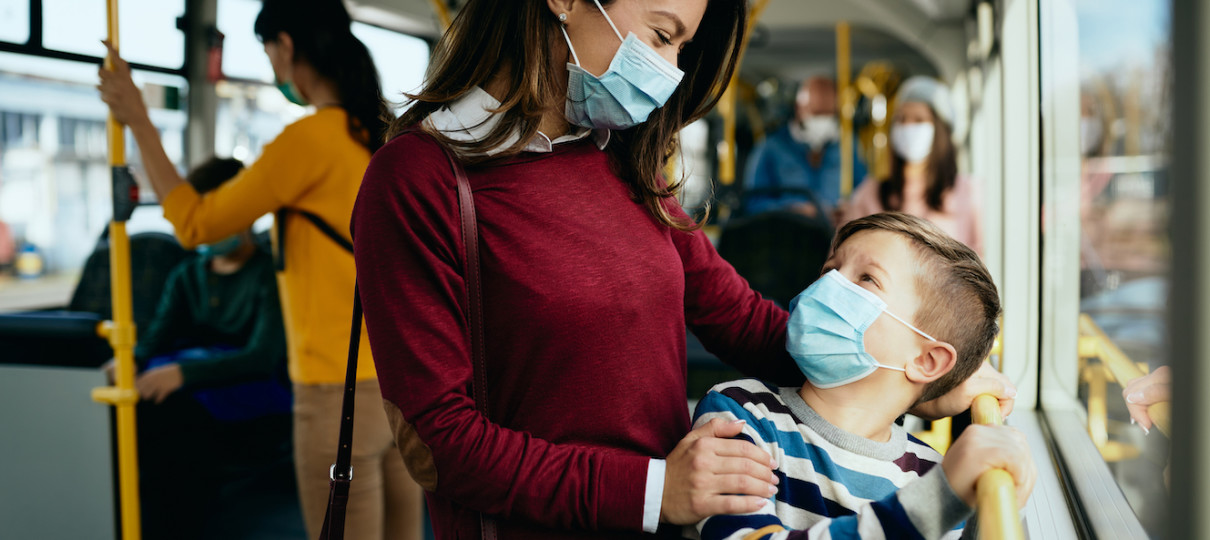Most people who get COVID-19 experience symptoms that can be treated at home (including the now prevalent BA.5 strain, which contains milder symptoms than earlier strains) and recover within a few weeks. However, some people face ongoing COVID-related health problems, physical, and/or mental, that can last for several months or longer in some cases.
People who face ongoing health challenges related to COVID-19 are often experiencing a condition known as “long COVID,” also known as long-haul COVID. This article will answer nine frequently asked questions about long COVID, including:
Let’s start at the beginning.
What is long COVID?
According to the American Medical Association (AMA), long COVID encompasses a wide range of new, returning, or ongoing health problems people may experience more than four weeks after first being infected with SARS-CoV-2. Even people who didn’t have any symptoms can experience long COVID. It’s estimated that anywhere from 10% to 30% of coronavirus patients might experience long COVID, regardless of how sick they were initially.
There are three types of long COVID, according to Dr. Devang Sanghavi from the Mayo Clinic in Florida:
- Category I: People with COVID-19 who don’t recover completely and have ongoing symptoms caused by direct cell damage from the virus.
- Category II: Individuals with symptoms related to chronic hospitalization, being in the ICU, or being bed-bound for weeks. In this category, there is inherent muscle weakness and brain dysfunction.
- Category III: Cases in which symptoms appear after recovery.
Dr. Sanghavi also notes that women are affected more than men by long COVID. Recent studies show there is an increased percentage of females, particularly middle-aged females, as compared to males, who have long COVID symptoms across the U.S, Asia, and Europe.
What are the symptoms of long COVID?
Long COVID symptoms are different from acute COVID symptoms. Conditions can include, but are not limited to:
- Persistent cough
- Loss of (or changes in) taste and smell
- Depression
- Difficulty breathing or shortness of breath
- Sleeping problems
- Lightheadedness
- Diarrhea
- Fatigue
- Anxiety
- Chest pain
- Palpitations
- Headache
- Joint and muscle pain
- Poor appetite
Does long COVID affect children?
Yes, long COVID can affect children. Common symptoms seen in children include:
- Fatigue
- Headache
- Trouble sleeping and concentrating
- Muscle and joint pain
- Persistent cough
As with other medical conditions, younger kids may have trouble describing the symptoms they’re experiencing.
Parents with young children suffering from long COVID who cannot complete their routine school assignments should ask their school administrators about special accommodations. According to the Centers for Disease Control and Prevention (CDC), this could include extra time to complete assignments and tests, more rest periods throughout the school day, and modified class schedules.
Do vaccines help prevent long COVID?
Research on the effects of authorized COVID-19 vaccines on long COVID conditions is ongoing. Remember that vaccines are intended to prevent severe illness and death from COVID. Vaccinated individuals can still get infected and suffer from long COVID.
[ Related: The financial implications of the COVID vaccine, explained ]
Are you contagious if you have long COVID?
No, you’re not contagious if you have long COVID. Symptoms and conditions associated with long COVID can’t be passed from individual to individual.
How can you protect yourself against long COVID?
According to the University of Maryland Medical System, the best way to protect against long COVID is to do what you can to protect yourself against COVID-19 in general, which is through a combination of strategies.
First, get vaccinated, and then once you’re fully vaccinated, get a booster shot as soon as you are eligible for one. You should also continue other COVID-19 preventive measures, including:
- Wearing a well-fitted mask over your nose and mouth (particularly in indoor public places)
- Avoiding large, indoor gatherings of people
- Maintaining six feet of distance from others where possible
- Washing/sanitizing your hands frequently
What should you do if you think you have long COVID?
If you think you’re suffering from long COVID, consult your doctor immediately. Bear in mind that there currently is no therapy or medication for treating long COVID, but your doctor can advise you on how to best manage your symptoms.
Does your insurance cover treatment for long COVID?
Generally, your health insurance carrier will pay for the care and treatment associated with long COVID just as they would any other medical condition. However, you should read your policy and talk with your insurer about the specifics of your health plan and what is and isn’t covered.
Life insurance companies have paid death benefits to survivors of policyholders who have died from COVID-19 and long COVID just as they have with any other covered cause of death. Consult your agent or life insurance company directly if you’re concerned about a COVID-related death claim being denied.
If you have a disability income insurance policy, check with your insurance carrier to see how they have elected to handle claims related to missed work from COVID and long COVID. Some companies may approve claims, others may not. Any benefit you do receive for being disabled from these conditions would also vary by the standard factors of all disability insurance policies, including your income, benefit amount, and the length of your benefit period.
How should you deal with long COVID stress?
Many people who suffer from long COVID suffer from extreme stress caused by the condition. According to the CDC, these are some steps you can take to help manage and cope with long COVID stress:
- Take breaks from watching, reading, or listening to news stories, including social media, about the COVID-19 pandemic. Repeatedly hearing about COVID can be stress-inducing.
- Take care of your body. Take deep breaths, meditate, eat healthy, well-balanced meals, exercise, get plenty of sleep, and avoid alcohol and drugs.
- If you’re able, unwind and enjoy some activities you enjoy.
- Stay connected to others. Talk with people you trust about your concerns and how you’re feeling.
For more information, explore the CDC’s recommendations on how to cope with a disaster or traumatic event.
The information and content provided herein is for educational purposes only, and should not be considered legal, tax, investment, or financial advice, recommendation, or endorsement. Breeze does not guarantee the accuracy, completeness, reliability or usefulness of any testimonials, opinions, advice, product or service offers, or other information provided here by third parties. Individuals are encouraged to seek advice from their own tax or legal counsel.







